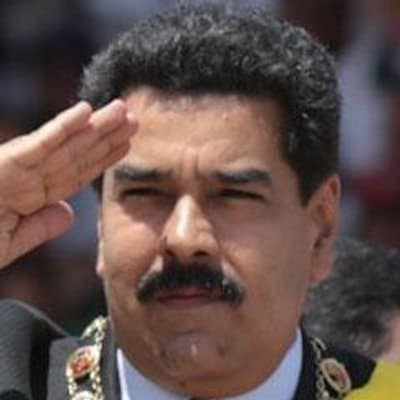“Bienvenido, Petro!”
And with those words, Venezuelan President Nicolas Maduro announced at a press conference Monday that the public sale of his country’s purportedly oil-backed cryptocurrency, El Petro, will commence November 5th.
Maduro told reporters and applauding supporters while brandishing a cellphone:
“If you have bitcoins you can buy Petros, if you have Ethereum you can buy Petros, if you have dollars or euros you can buy Petros. And from November 5, the Petro … will go on sale to the Venezuelan public in sovereign bolivars.”
 Maduro said the public can either hold the new state-backed crypto or buy El Petro bonds, and claimed the “world’s six most powerful exchanges” were in attendance at the announcement, ready to, “participate today in the usability, transferablity and tradability of the Petro.”
Maduro said the public can either hold the new state-backed crypto or buy El Petro bonds, and claimed the “world’s six most powerful exchanges” were in attendance at the announcement, ready to, “participate today in the usability, transferablity and tradability of the Petro.”
He went on to call the day of the announcement, October 1st, a “historical date” in Venezuela:
“…born with its own technology, with its own effort, in a free and independent country, is the digital oil currency, the Petro.”
The government of Venezuela announced the creation of El Petro in January of this year, and shortly thereafter, Maduro announced that his government had raised 4.777 billion Chinese yuan ($735 million USD) in the currency’s presale.
One of the currency’s purported aims is to assert and “reaffirm (Venezuela’s) economic sovereignty” in a global economy some believe is dominated by American economic and political interests.
But critics have called the Petro venture another instance of poor fiscal management on behalf of the regime, and the equivalent of the government “printing money.”
Chronic economic contraction, critically diminished consumer and medical supplies and runaway inflation in Venezuela have induced a growing refugee crisis in the region. Mal- and undernourished Venezuelans have started pouring across the border into neighbouring countries by the thousands.
Some fear the crisis could reach proportions similar to the refugee crisis witnessed in the the Mediterranean in 2015.
Brazilian villagers living close to the border have woken up to find Venezuelan families camped in their backyards. Both Ecuador and Peru have attempted to refuse entry to Venezuelan’s attempting to cross borders without passports, though an Ecuadorean judge recently overturned that policy.
In July, the International Monetary Fund (IMF) stated that Venezuela is “stuck in a profound economic and social crisis” and predicted that inflation rates there will hit 1 million percent by year’s end.
A recent four-month on-the-ground investigation by Reuters found that Venezuela has neither the necessary infrastructure to properly implement El Petro, nor adequate capital to harvest the oil it says is backing the currency.

